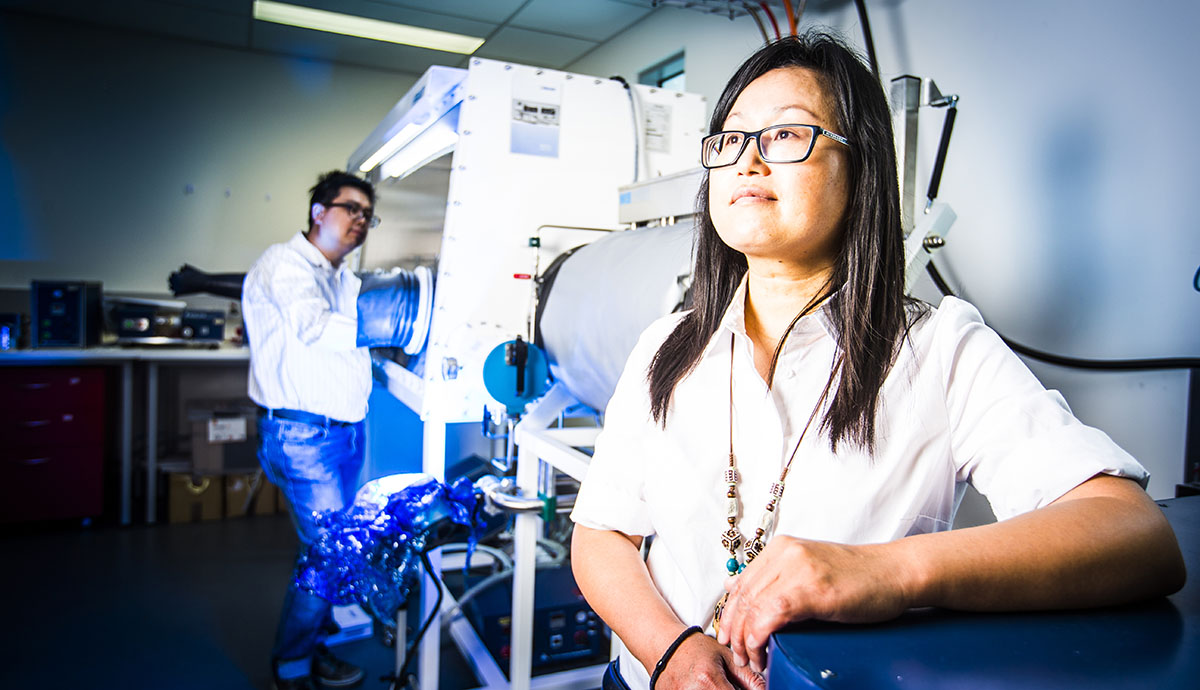May 31, 2017
Projects to supply future energy needs among those to win ARC funding
UOW researchers awarded over $1.7 million in Linkage Project grants
A project to develop the next generation of lithium-ion batteries for electric vehicles, and another that could help make safe, clean nuclear fusion power a reality, are among the winners in the latest round of Australian Research Council (ARC) Linkage Project grants announced by the Federal Minister for Education and Training, Senator the Honorable Simon Birmingham this morning (Wednesday 31 May).
Other University of Wollongong (UOW) projects to be awarded funding were: a project to improve security for online businesses; one to address a problem that would otherwise put future Australian iron ore products at a disadvantage; and another that would increase the lifespan of steel pipelines used to convey oil and contaminants.
The five successful UOW projects were awarded funds totalling $1,705,000. The Linkage Projects scheme is designed to promote links between universities, industry and the community. Linkage Projects must involve a partner organisation outside the higher education sector and these partners are required to make a significant monetary contribution to the project, in addition to ARC funding.
Professor Zaiping Guo (pictured above), an ARC Future Fellow at UOW’s Faculty of Engineering and Information Sciences (EIS) and the Australian Institute of Innovative Materials (AIIM), was awarded $420,000 in Linkage Project funding for project to develop the next generation of high-energy-density lithium ion batteries.
Professor Guo said the batteries would “significantly increase the driving range of an electric car”. She expects the batteries to be ready for commercial use within three to five years. Chinese battery company Tianneng Power International is also funding the project.
Professor Willy Susilo, Head of the School of Computing and Information Technology in EIS, was awarded $245,000 to design a highly secure anonymous access system for online businesses in Australia and worldwide that would enable them to take advantage of customer feedback while offering privacy protection to the customers. His project is co-funded by Tickets.Com and Suzhou Insight Cloud Information Technology.
Professor Kiet Tieu, also from EIS, was awarded $450,000 in funding for his project to develop an engineering technique that would increase the lifespan of seamless steel pipelines used to convey oil and contaminants. These pipelines are currently susceptible to internal erosion-corrosion, which shortens their life. His project has co-funding from Zhejiang Cihang Marine Environmental Technologies.
Professor Brian Monaghan’s project, which received a $270,000 grant, is aimed at overcoming a competitive disadvantage for Australian iron ores in the global market. This disadvantage is caused by changing ore grades, in particular an increase in phosphorus content. A secondary outcome of his project would be to increase recycling rates of steelmaking slag, reducing the amount of material sent to landfill.
Professor Monaghan is also from EIS, and his project is co-funded by BHP Billiton Innovation.
Dr Md Shahriar Hossain from UOW’s Australian Institute for Innovative Materials, received $320,000 for a project to develop superconductors for use in nuclear fusion reactors, making widespread uptake of these reactors viable. Dr Hossain’s project has additional funding from Hyper Tech Research, Pavezyum, and Magnix Technologies.
UOW Deputy Vice-Chancellor (Research and Innovation) Professor Judy Raper welcomed the announcement and congratulated the successful applicants.
“This funding will allow UOW researchers to work with these businesses to achieve solutions that will have a beneficial long-term impact on a range of industry sectors,” Professor Raper said.
